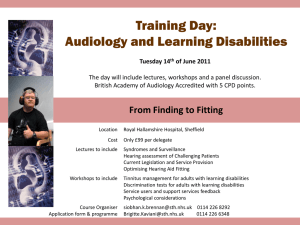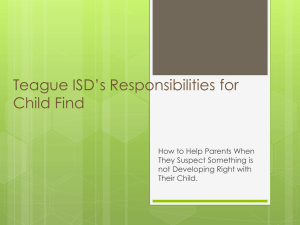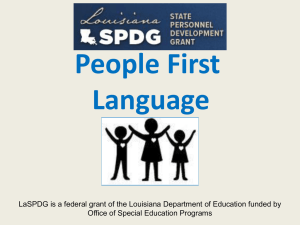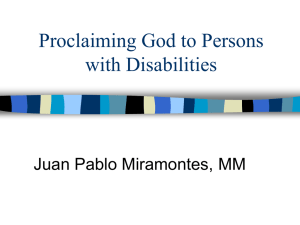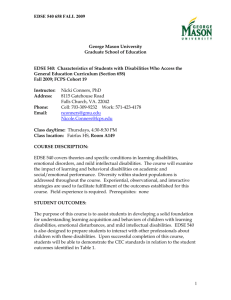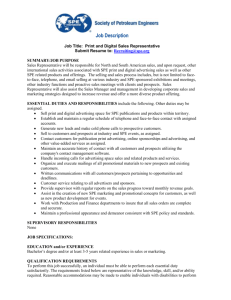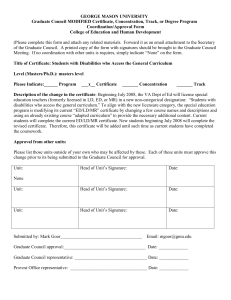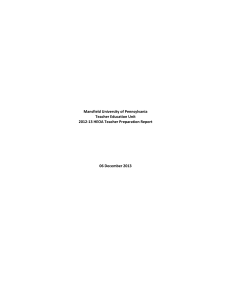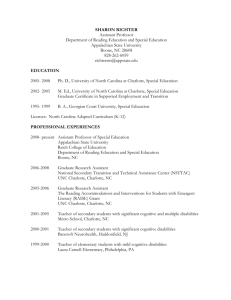Special Education General Curriculum (typically ED, LD & MR)
advertisement
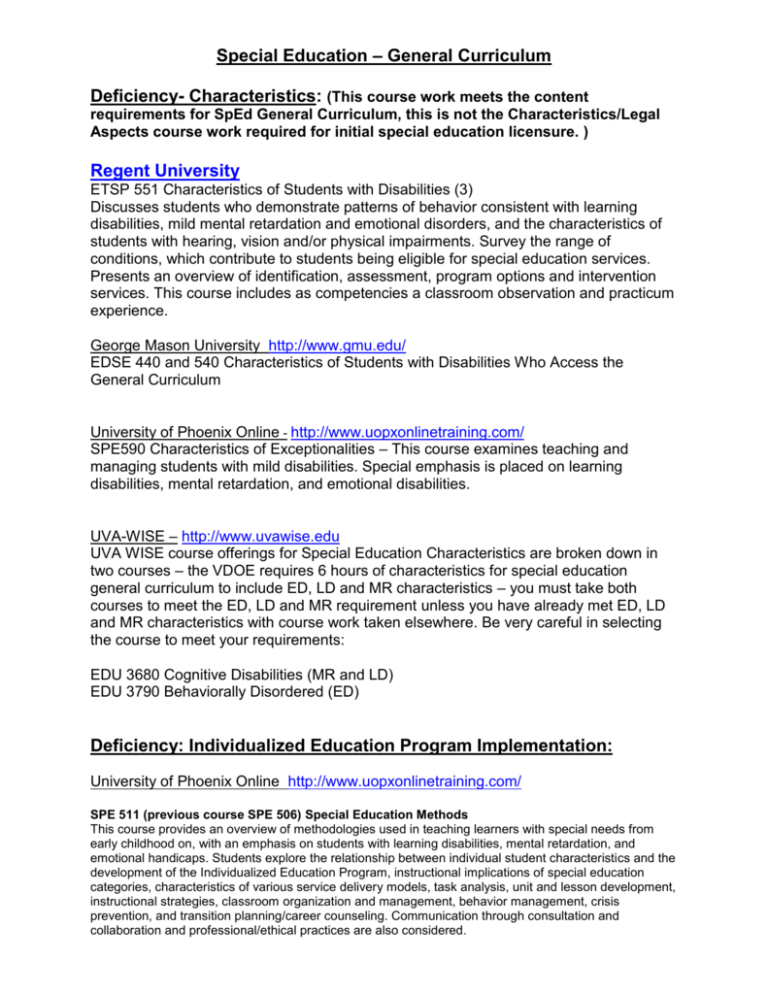
Special Education – General Curriculum Deficiency- Characteristics: (This course work meets the content requirements for SpEd General Curriculum, this is not the Characteristics/Legal Aspects course work required for initial special education licensure. ) Regent University ETSP 551 Characteristics of Students with Disabilities (3) Discusses students who demonstrate patterns of behavior consistent with learning disabilities, mild mental retardation and emotional disorders, and the characteristics of students with hearing, vision and/or physical impairments. Survey the range of conditions, which contribute to students being eligible for special education services. Presents an overview of identification, assessment, program options and intervention services. This course includes as competencies a classroom observation and practicum experience. George Mason University http://www.gmu.edu/ EDSE 440 and 540 Characteristics of Students with Disabilities Who Access the General Curriculum University of Phoenix Online - http://www.uopxonlinetraining.com/ SPE590 Characteristics of Exceptionalities – This course examines teaching and managing students with mild disabilities. Special emphasis is placed on learning disabilities, mental retardation, and emotional disabilities. UVA-WISE – http://www.uvawise.edu UVA WISE course offerings for Special Education Characteristics are broken down in two courses – the VDOE requires 6 hours of characteristics for special education general curriculum to include ED, LD and MR characteristics – you must take both courses to meet the ED, LD and MR requirement unless you have already met ED, LD and MR characteristics with course work taken elsewhere. Be very careful in selecting the course to meet your requirements: EDU 3680 Cognitive Disabilities (MR and LD) EDU 3790 Behaviorally Disordered (ED) Deficiency: Individualized Education Program Implementation: University of Phoenix Online http://www.uopxonlinetraining.com/ SPE 511 (previous course SPE 506) Special Education Methods This course provides an overview of methodologies used in teaching learners with special needs from early childhood on, with an emphasis on students with learning disabilities, mental retardation, and emotional handicaps. Students explore the relationship between individual student characteristics and the development of the Individualized Education Program, instructional implications of special education categories, characteristics of various service delivery models, task analysis, unit and lesson development, instructional strategies, classroom organization and management, behavior management, crisis prevention, and transition planning/career counseling. Communication through consultation and collaboration and professional/ethical practices are also considered. Deficiency: Individualized Education Program Implementation (Continued): George Mason University http://www.gmu.edu/ EDSE 628 Elementary Reading, Curriculum and Strategies for Students with Mild Disabilities EDSE 629 Secondary Curriculum and Strategies for Students with Disabilities who Access the General Curriculum Deficiency - Transition: George Mason University http://www.gmu.edu/ EDSE 544 Adapted Instructional Methods and Transition for Secondary Learners University of Phoenix Online http://www.uopxonlinetraining.com/ SPE558 Transition Planning for Adolescents with Disabilities Deficiency - Collaboration: University of Phoenix Online http://www.uopxonlinetraining.com/ SPE 575 Inclusion Strategies for the Special Educator SPE 557 Collaboration with Families of Students with Disabilities Regent University http://www.regent.edu/ ETSP 555/GSAS 555- Collaboration & Consultation Deficiency- Psychoeducational Assessment: GMU – 627 Psychoeducation Assessment UVA –Wise – EDU 3750 Psychoeducational Diagnosis University of Phoenix Online SPE 512 Special Education Assessment and Interpretation


